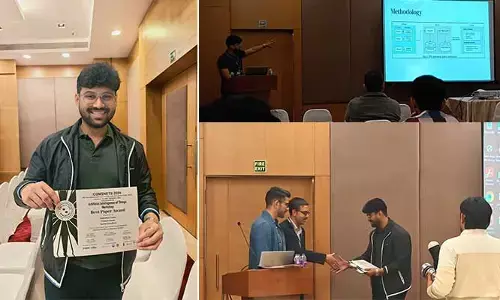Core disciplines in BBA programme

The bachelor of business administration (BBA) degrees has been typically offered by commerce departments in colleges and universities.
The bachelor of business administration (BBA) degrees has been typically offered by commerce departments in colleges and universities. This aspect restricted the variety of specializations that could be offered and affected the employability opportunities available to the graduates. The last few years have seen some of the top B-schools, which historically kept away from undergraduate (UG) programs, offering such programs. This has the potential of making BBA degrees an attractive alternative to engineering and other professional degrees aimed at aspirational careers.
Traditionally, BBA degrees are seen as useful either to those joining their family businesses or as a step towards an MBA degree. The lack of adequate depth in specialisations meant that the companies could only employ the graduates in basic roles. The Honors degrees by some Universities remedied this to some extent with a greater degree of specialisations.
However, the introduction of four-year BBA programmes has provided the opportunity for a better balance between foundational, core, and specialisation courses. Hence, we are likely to see much better employment opportunities and higher salaries offered to the graduates with specialised four-year degrees.
The new UG management education ecosystem, therefore, empowers students with a wide variety of choices in specialisations. There is a tendency for the B-schools to offer all of those specialisations available for the MBA programmes. However, some of such electives simply do not make sense.
I would not recommend, for example, a Strategy specialisation to a BBA student – it is too early, and no student has the foundational knowledge to absorb such a higher-order body of knowledge.
The shortlists of five specialisations that a student can consider are…
1. Marketing
2. Finance
3. Operations
4. HR
5. Entrepreneurship
Marketing specialisation has always been a popular choice. It appears to fit nicely with the temperament that most students come with to a BBA programme. When asked why they think marketing is a good choice, many students say that 'they like interacting with people'. Sure, that's a prerequisite for marketing. But that's not all. In terms of hard work and perseverance requirements, a marketing specialisation is right at the top.
The specialisation has two main sub-domains, sales and marketing.
The marketing: Sub-domain appears to be more popular than sales, while the latter enjoys better job and growth opportunities. Many students are disappointed at the time of placements when they are forced to take up a sales job after aspiring for a marketing career. Personal aptitude and ambitions are essential. Nevertheless, students should be mindful of the vagaries of the job market and be flexible.
Top-class finance faculty, support for professional certifications, and availability of lab facilities would be good indicators. Banking, Finance, and Accounting are the usual sub-domains that the students can specialize in through their choice of electives.
Human Resources (HR): HR continues to be a good choice for students who have the aptitude and are looking for a good work-life balance. Apart from the traditional role of an HR manager, students might look to further specialize in labour law, public relations, communication, or niche topics such as ethics or HR analytics.
It was earlier felt that the field of operations management was more suited to engineers. This is not true anymore with the kind of jobs that are available. The subjects tend to be numbers-based, and learning optimisation techniques are essential for an operations manager.
A typical student in this age group has probably never seen actual operations or production facilities. This, therefore, is one specialisation that needs utmost care while choosing a college. One should avoid programmes offered by commerce departments if you plan to take up an operations specialisation – they are unlikely to have the faculty and facilities for running good operations electives. Again, look for colleges with a proven track record in providing experiential learning. Sustainable operations is a sub-domain that has gained prominence in the last few years.
Entrepreneurship: It is something that excites and scares every student. While many students show inclination initially, they tend to look for safer jobs as the program gets closer to completion. This is mainly because of poorly planned entrepreneurship support by the institutes. Look for an ecosystem with incubation centres, mentoring by successful entrepreneurs, sessions by industry experts, and faculty support for business plan presentations. Entrepreneurship is a risk-driven activity, and a casual approach by the institute can demotivate and waste effort, money and time for the student.
Also, students should look for B-schools that promise state-of-the-art facilities such as analytics and finance laboratories and other advanced experiential learning facilities. Delivering effective in-depth specialisations is not possible without such facilities. Sometimes advertisements can be misleading. Visiting the campus or clarifying doubts over phone calls from responsible contact persons is one way to ensure that you make a good choice of a B-school that offers excellent specialisations exposure.
(The author is Dean,T A Pai Management Institute Bengaluru)

















